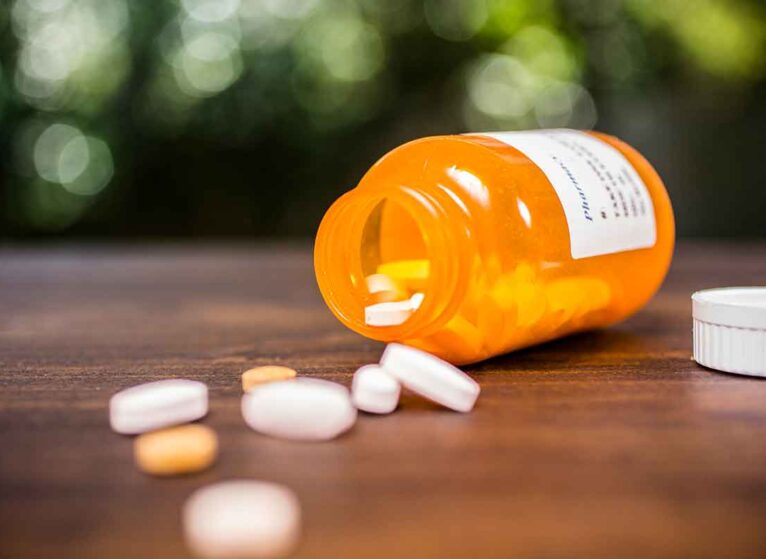Most people know that brand-name drugs often have generic counterparts. We also know that generic drugs cost less than the brand-name versions. Of course, everyone wants to save money. But this is your health we’re talking about. So, the question about brand-name vs. generic drugs is: Are they the same thing?
In a nutshell, the answer is Yes. Generic drugs are usually just as good and just as safe as their more expensive brand-name versions. Still, you should be aware of some things when choosing between them.
Brand-Name vs. Generic Drugs: What’s the Difference?
The Medical Drug Patent Process
Pharmaceutical (drug) companies develop and produce brand-name drugs after extensive research, testing, and clinical trials. To sell these drugs, which means getting approval from the Food and Drug Administration (FDA), companies have to prove they've tested them for safety and effectiveness. Most drugs have to undergo 3 rounds of clinical trials before getting approved, like the kind of clinical trials we do at UVA Health.
This kind of testing takes money. To protect these investments and to encourage more in the future, the U.S. government awards patents to individual drug companies. A patent gives the company the sole legal right to make and sell its new drug for around 20 years. The idea is that the drug company can then make back that money, plus a profit, during the patent period.
To get a patent, a company has to show that a medicine is:
- New
- Not obvious (more than just a tweak to an existing product)
- Beneficial
After the 20-year mark, other companies can start making generic versions of the drug.
How Generic Drugs Compare to Brand Names
Once the patent expires, other companies can apply to the FDA to produce their own generic version of the drug. To get approval, the generics must match the original by:
- Containing the same active ingredients
- Having mostly the same strength and dosage
- Being taken the same way (e.g., by mouth, injection, etc.)
Another way of saying this is that generic drugs must show that they are “bioequivalent” to the brand-name drug.
Drug Amount in Generics vs. Brands
When compared to the brand-name version, the amount of drug a person absorbs using the generic version can't be:
- Less than 80%
- More than 125%
This range of variation is generally considered medically insignificant and is based on the natural variation in drug-absorption rates in a large group of patients.
In a further bit of reassurance, the FDA continues to monitor generic drugs after they’ve been approved.
So if you’re taking a generic version of a drug, you can rest assured that you’re getting the same benefits from it as from the more expensive brand-name version.
Why Do Generic Drugs Cost Less?
Since the active ingredients, strength, dosage, and way you take the drugs are basically the same, why are generic versions cheaper? There are several reasons.
- Generic drug makers don't need to charge as much money. They aren't trying to recoup any financial investment. The pharmaceutical company that developed the brand-name version already did the heavy lifting.
- The makers of generic drugs usually don’t spend money on marketing or advertising like many brand-name drugs do.
- Because several different companies can make the same generic drug, price competition can also lower the cost.
When to Choose Brand-Name Over Generic Drugs
When comparing generic to brand-name drugs, you should keep 2 things in mind.
Narrow Therapeutic-Index Drugs
These are drugs where small differences in dose could lead to either ineffectiveness or serious side effects. For these drugs, you'll want to be careful about the kind you choose. Your doctor can help you with information about which one is best for your condition.
Examples of these drugs include blood thinners, certain cancer and heart drugs, and seizure medications. If you take one of these, you probably have regular blood tests for safety.
A slight difference in how a manufacturer makes these drugs can have a big impact. So both doctors and pharmacists prescribe these with care.
Allergens in the Ingredients
Companies may use different ingredients in various versions of a drug. You might find you're allergic to something in a generic version of a drug that doesn't exist in the brand-name version.
You'll see these ingredients listed on medicine labels as "inactive." These are non-medical components of a drug. Examples include:
- Binding agents to keep the pill or tablet together
- Dyes or coloring
- Disintegrants, which help the pill or tablet break apart once you’ve swallowed it
- Preservatives to extend the drug's shelf life
Be sure to tell your doctor or pharmacist about any allergies you might have to any of these ingredients.
How Do Hospitals Get New Medicine?
The answer may surprise you.
The Bottom Line When Choosing Your Medicine
For most people, generic drugs are just as good as brand-name versions.
The FDA and professional organizations such as the American Medical Association, along with most doctors and pharmacists, favor generics whenever possible.
Patients, especially those with chronic or long-term conditions, favor generics for economic reasons, since they’re just as effective as branded drugs.
Of course, as in anything related to your health, talk to your doctor about your choices with your prescriptions.


